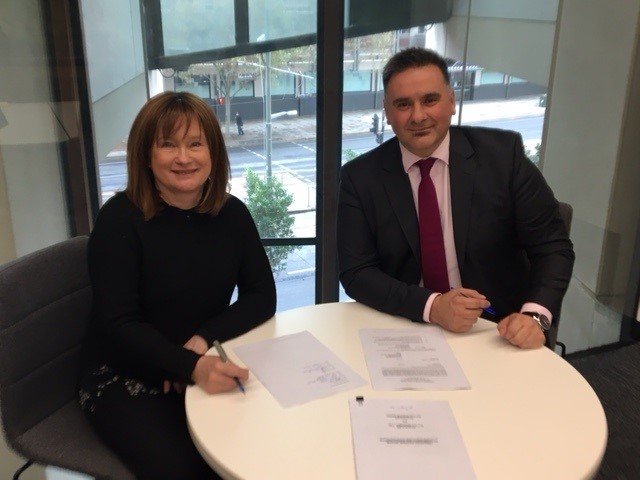Carina Biotech is pleased to announce that it has appointed Australian organisation Cell Therapies to undertake Good Manufacturing Processes (GMP) manufacture of its LGR5 CAR-T cells for a first-in-human clinical trial.
HIGHLIGHTS
- Melbourne-based contract development and manufacturing organisation Cell Therapies will manufacture Carina Biotech’s LGR5 CAR-T cells for a first-in-human clinical trial for patients with advanced colorectal (bowel) cancer.
- Carina’s CAR-T cells are targeted at LGR5, a cancer stem cell marker that is highly expressed on colorectal cancer and other cancers.
- Colorectal (bowel) cancer is the deadliest cancer for Australians aged 25-34 and Australia’s second deadliest cancer overall.
- Young-onset colorectal cancer is often diagnosed at later stages, which have a much poorer prognosis.
Dr Deborah Rathjen, Carina’s CEO, said: “We are delighted to be working with Cell Therapies, with their deep expertise in cell therapy development and manufacturing. Also, it’s fantastic to be working with another Australian-based organisation. This will allow our teams to work efficiently together during the development phase and through the manufacturing process.”
Cell Therapies CEO, Mr Peter Giannopoulos, said: “As the first Australian site to obtain TGA approval to commence onshore manufacture of CAR-T cell therapy products, we are delighted to now be working with an Australian company that is advancing a promising CAR-T cell therapy candidate in colorectal cancer.”
Dr Deborah Rathjen further commented: “Colorectal cancer is Australia’s second deadliest cancer and its incidence is rising in people under the age of 50 – with many of these people being diagnosed at advanced stages of the disease and with a very poor prognosis.
Our LGR5 CAR-T cell has continued to deliver impressive results in pre-clinical testing. We submitted our pre-IND application in March this year and we are on track to file an IND application with the FDA in the second half of 2022. These are important milestones towards the initiation of a Phase I/II clinical trial in patients with advanced colorectal cancer.”
About LGR5
LGR5 is a cancer stem cell marker that is highly expressed on advanced colorectal cancer and some other cancers. In colorectal cancer patients, LGR5+ expression has been correlated with a particularly poor prognosis.
Cancer stem cells are a small sub-population of cells within a tumour with the ability to self-renew, differentiate into the many cell types of a tumour, initiate new tumours, and resist chemotherapy and radiotherapy (leading to relapses).
By targeting cancer stem cells, it is hoped that this therapy will reduce the tumour’s ability to generate new cancer cells, resulting in durable tumour suppression and preventing the relapses that are very common in patients with colorectal cancer.
Carina’s pre-clinical studies of the LGR5-targeted CAR-T cell have shown highly promising results with complete tumour regression and no tumour recurrence. They have also demonstrated impressive tumour access and prolonged CAR-T cell survival.
About Cell Therapies
Cell Therapies Pty Ltd (CTPL) is a leading contract manufacturer of global cellular therapy products. Since 2003, CTPL has provided the essential infrastructure for delivery of cell-based therapeutics into clinical trials and commercial markets internationally. CTPL has successfully helped develop products and processes that are compliant with global regulatory and cGMP requirements and have successfully integrated with global manufacturing networks.
Cell Therapies’ facility at the Peter MacCallum Cancer Centre in Melbourne, Australia, has 10 small-scale clean rooms used for translational clinical activities and three large-scale clean rooms used for late-stage clinical and commercial supply of ground-breaking cell and gene therapy products. This facility is licensed by the Australian TGA for GMP manufacturing of T-cell products for commercial supply, along with accreditation by the Japanese MHLW for supply to patients in Japan, ensuring that our clients’ products meet local and global regulatory standards.

